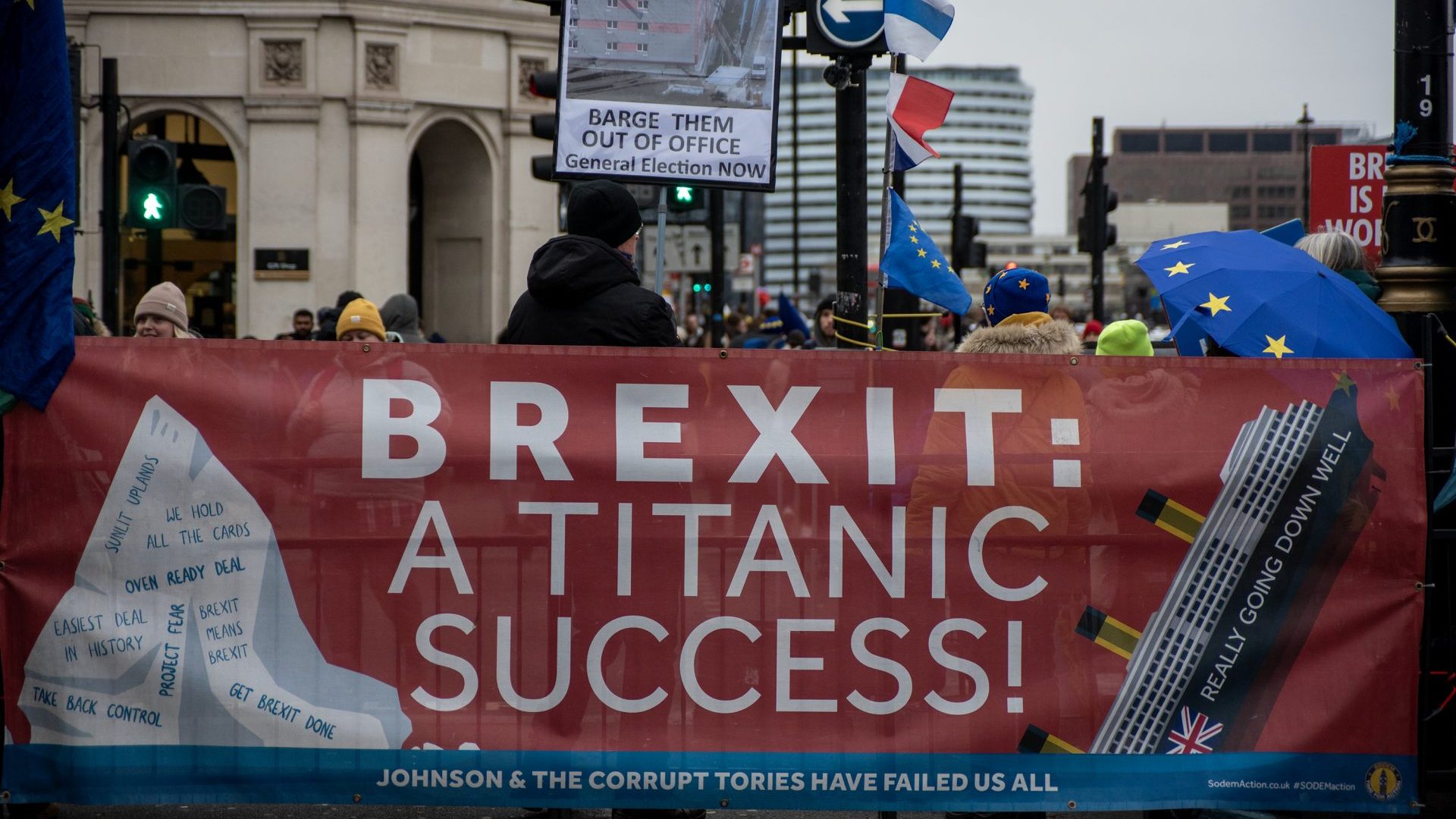A clear majority of the public now believes Brexit has been bad for the economy, upped the cost-of-living and damaged attempts to control immigration, according to a poll three years on from the UK leaving the EU.
The survey by Opinium found that only a tiny percentage believes that Brexit has benefited either them or the country.
Just one in 10 of the 2,000 UK voters polled said that leaving the EU had helped their personal finances, against 35% who said it had worsened their situation. A mere 9% said it has been good for the NHS, despite Boris Johnson’s promise of an extra £350m a week for the service. 47% said it has had a negative effect on the NHS.
Just 7% said Brexit had helped keep prices in UK shops down, against 63% who thought it had been a factor in fuelling both inflation and the cost of living.
Voters also thought that Brexit had been bad for trade. 49% said it had reduced the ability of UK firms to import goods from outside the EU, while 15% thought it has helped.
More widely, seven-and-a half years on from the referendum, the poll indicates the public now regards Brexit as a failure. Just 22% of voters said it had been good for the UK in general.
James Crouch, head of policy and public affairs at Opinium, said the negative perception of Brexit appeared to be spreading
He said: “Public discontent at how Brexit has been handled by the government continues, with perceived failings even in areas previously seen as a potential benefit from leaving the EU.
“More than half of leave voters now think that Brexit has been bad for the UK’s ability to control immigration, piling even more pressure on an issue the government is vulnerable on. Despite this, Brexit is likely to be a secondary issue at the next election compared to the state of the economy and the NHS, which are the clear priority for voters.”
Robert Ford, professor of political science at Manchester University agreed that, in contrast to the 2019 vote, Brexit was still unlikely to prove a key issue at the next general election.
He said: “Voters’ attention has shifted decisively elsewhere, with leave and remain voters alike focused on the domestic agenda of rising bills, struggling public services and weak economic growth.
“The appeal of ‘Get Brexit Done’ was not just about completing the long Brexit process but also about unblocking the political system and delivering on other long-neglected issues. Brexit got done, but this has not unblocked the political system, and troubles elsewhere have only deepened. Many of the voters who backed the Conservatives to deliver change now look convinced that achieving change requires ejecting the Conservatives.
“This shift in sentiment may be particularly stark among the ‘red wall’ voters who rallied most eagerly to Johnson’s banner four years ago, but have been most exposed to rising bills and collapsing public services since. The final act of Brexit may yet be the collapse of the Brexit electoral coalition.”











